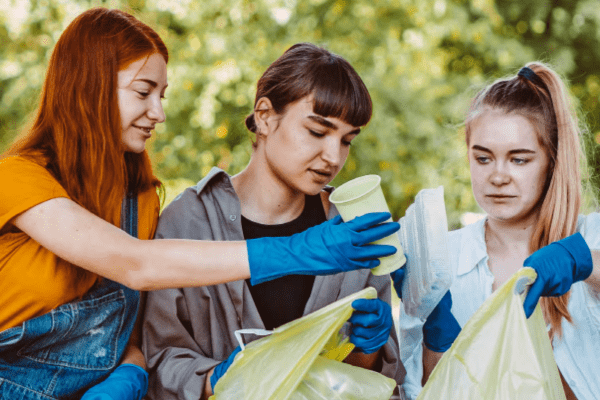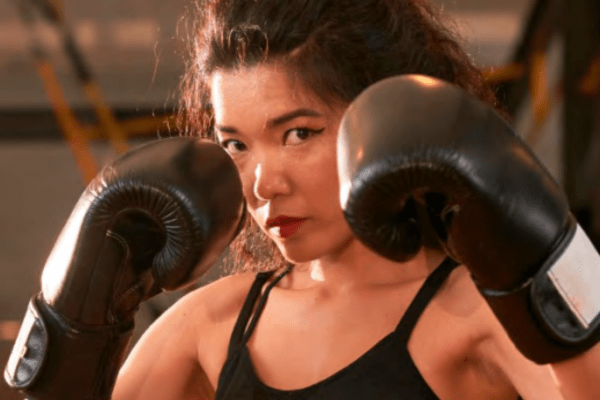Project
Having held strategy roles in previous jobs at Girlguiding and Scope, Ruth was very clear about where she found the organisation and what kind of strategy support was required.
Ruth: “We had a strong and well-respected product in the Award so I wanted to use the strategy development process as an opportunity to really focus on how we could use the Award to make the biggest difference for young people, particularly given the impact of Covid. I wanted us to be much more strategic about where we are going, honest with ourselves about the challenges, and then prioritise relentlessly on doing the things that would help us make the biggest impact. I also wanted to use it as an opportunity to gather insight and feedback from our stakeholders so the strategy reflected the things that DofE leaders, supporters and young people thought were most important.”
Eastside People were commissioned to work alongside the DofE’s leadership team in order to project manage the strategy process and provide both technical support in specialist areas (user engagement, change management, diversity and inclusion) and an extra pair of hands as needed.
Ruth: “The team internally was really enthusiastic about the project but lacked experience of strategy development. So, alongside the day to day project support I also wanted this to be a learning opportunity for staff across the charity and a chance for individuals to develop some more specialist skills. I didn’t want consultants to come in and just do the work for us and then leave us with something that we didn’t feel ownership over.”
Solution
During this ambitious project, the Eastside People team were faced with the challenge of how to manage a complex strategy process that needed to be integrated with new approach to impact measurement, diversity, and change management. They wanted to undertake very thorough user engagement so that strategic options could be road-tested with real-world insights. Given the scale of the DofE’s network, though, this became a massive data mining exercise with the team collating and interpreting feedback from thousands of respondents using multiple feedback channel
They approached the task by mobilising a multi-disciplinary team that was led by Ruth Dwight as project lead, with Ruth Cane focusing on values and change management, and Dr Rosie Chadwick on impact and user engagement. They also collaborated with experts outside of Eastside People such as Amie Hubari of the Hebe Foundation on diversity and inclusion, and Will Watt and Lizzie Trotter from State of Life for the impact measurement framework. The aim was to create a world class team that met the unique requirements of the DofE.
Ruth: “What I really liked about the Eastside People approach it is that it wasn’t one size fit all. I really liked the idea you could pull together a project team that was bespoke to our requirements. Nobody else was offering that. Your model allowed you to have a lot of flexibility about the different expertise you brought to the project and meant the in-house team benefitted from working with experts in a really wide range of disciplines which was brilliant for their learning. I would thoroughly recommend this approach to others as it gave us real strength across all the different components of the work.”
Working flexibly with colleagues at the DofE, Eastside People ran a structured and facilitated programme resulting in the production of a new 5 year strategy, with clear strategic goals as well as a KPI framework and a new set of Values and Behaviours backed up with a theory of change and a best in class impact measurement framework. The result is a strategy that is bold and ambitious but also rooted in pragmatism and backed up by a strong evidence base.
Equality, diversity and inclusion was put at the heart of the strategy and given a very strong outward-facing emphasis within the process. A key priority for the strategy was to understand how DofE could increase its reach to young people who were more marginalised or faced barriers to participating in the Award.
Eastside People focused hard on specificity, enabling the DofE to move from a vague ambition to reach disadvantaged young people to a clearer set of actions that were informed by robust data. It enabled DofE staff to gather and analyse evidence about young people’s perceptions of DofE and the barriers to participation so more targeted responses could be developed.
This has resulted in a greater focus on developing different delivery models for different types of settings, investment in financial support for young people on lower incomes, and a focus on how DofE communicates with young people about the Award and the important role that training for leaders can play in making the Award accessible and appealing to all young people.
“I’ve been working with young people with Additional Support Needs for thirteen years. I am always amazed at the extraordinary difference engagement with DofE makes to them… Our new strategy will widen opportunities to engage with young people facing barriers to participation, and to make contact with centres, schools and establishments who may not have considered DofE.”- Tim McArthur, Centre Support Officer, DofE Scotland.
Six months after the strategy was launched, Eastside People returned to speak with the DofE’s CEO in order to understand how it is being used and what changes have arisen.
The organisation reported a number of outcomes:
- The strategy has galvanized the organisation around a clear ambition “to give more than one million young people the chance to participate in DofE programmes over the next five years.”
- It has provided the management team with a framework that makes it easier to prioritise, plan our work and focus investment on the most important areas.
- It has acted as a great engagement tool strengthening relationships internally with staff and with the DofE network of centres and volunteers and providing assurance to the DofE family that Eastside People are focusing on the things they think are important.
- It has really helped to communicate a compelling vision for the future that inspires existing and new donors to support us – already this has led to us being able secure multi-million pound development grants and engage thousands of new supporters as people can really see how their support can change young people’s lives for the better
- It’s enabling the organisation to pace itself and plan key strategic changes and investments over a 5-year period because there’s a clear and tangible set of goals and success metrics that the Board and leadership team can coalesce behind.
- It has provided a transfer of knowledge and skills to the leadership team building capacity organisationally and individually for those DofE colleagues involved in the process
“Ruth: I think you did loads and it was brilliant. As a result of this process I now have a compelling strategy that was co-created with our stakeholders and is helping to unite and inspire staff, supporters and the amazing DofE network behind a clear vision and set of goals. As an added bonus, my leadership team has had hands-on practical experience of how to develop and deliver a strategy development process from the start to the end which has really enriched them and added value to the charity. They were supported by Eastside People to learn and develop through the process and received bespoke coaching in a really wide variety of areas from impact measurement to change management to research methods and developing organisational values and behaviours which is just incredible.”
Read the DofE strategy.
Find out more about Eastside People’s Strategy Services.





